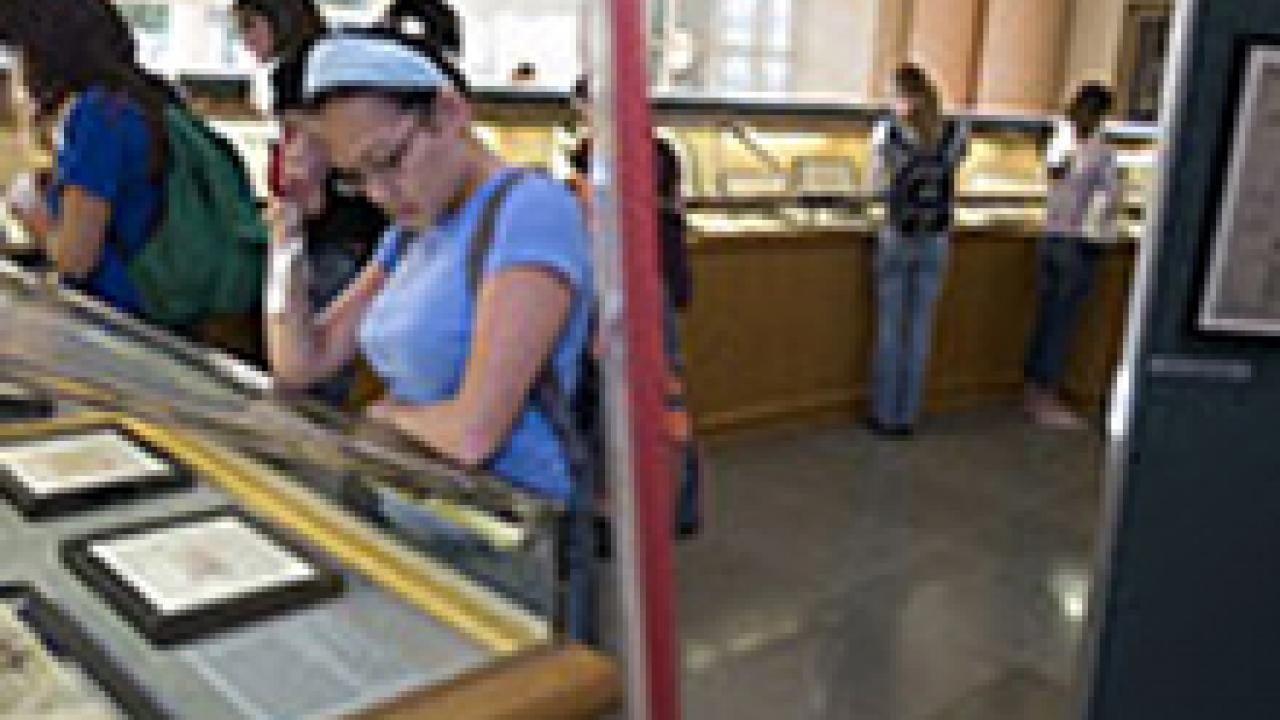When Polish historian Emanuel Ringelblum collected the diaries, art objects, documents, papers, candy wrappers and posters of the Warsaw Ghetto during the Nazi occupation, he preserved both the memory and the hope of that doomed community, said Samuel Kassow, a history professor at Trinity College in Hartford, Conn.
"The Germans thought they would win the war, control the documents, and determine how history would view the Jews," observed Kassow, speaking Monday before more than 100 people at Shields Library for a lecture on the Ringelblum exhibition. "Scream the Truth at the World: Emanuel Ringelblum and the Hidden Archive of the Warsaw Ghetto" is on display through Nov. 30 in the library's lobby.
"But writing was a great act of resistance," continued Kassow, who specializes in the history of Russia, Germany and Eastern Europe, and is completing the first biography of Ringelblum, a socialist, political worker and writer. "Recovering the documents was an act of resistance as well."
The fate of Ringelblum's archives — codenamed "Oneg Shabbat" — is only partially known. On the eve of the ghetto's destruction in the spring of 1943, when all seemed lost, the archive was placed in three milk cans and metal boxes. Some of the archives were buried in the cellars of Warsaw buildings.
On March 7, 1944, Ringelblum's refuge was discovered by the Germans. Along with his family, he was executed.
In September 1946, 10 metal boxes were found in the ruins of Warsaw. "A lot was not found," sighed Kassow. "A lot was lost."
Kassow described Ringleblum as a "scholar of the people" who sought to "tell the whole truth" about "the quiet heroism of the ordinary Jew."
UC Davis is the only university in the world with an Emanuel Ringelblum chair. History professor David Biale, who holds that post, said before the lecture, "We should be screaming the truth at the world today" about genocide in places like Sudan's Darfur.
The traveling version of the Ringelblum exhibition is on national tour. The complete archives, housed in the Jewish Historical Institute in Warsaw, Poland, includes more than 6,000 objects.
Media Resources
Clifton B. Parker, Dateline, (530) 752-1932, cparker@ucdavis.edu
